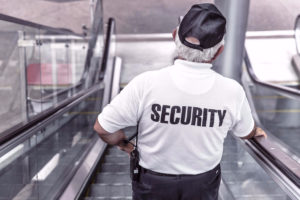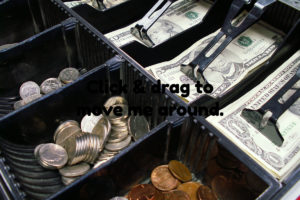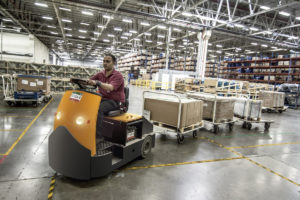 What do you do when a crisis occurs? Many people would say they take steps to address the crisis. Initially, that may sound like a good response unless you never planned on how you would react if that crisis were to take place. Think about it for a moment. If your business was on fire would you want firemen pulling up in their cars without the right gear or a plan of action of how they will take care of the fire? Sure it’s good to have the firemen there but if they don’t have the resources they need or a strategy on how to put out a house fire then the response is pointless. Police officers train on how to respond to a bank robbery in progress but the reality is many officers will never face that situation. According to a Cleveland Clinic Survey, 54% of Americans say they know CPR but the vast majority of us will never be called upon to use that training. So why do we do it? Why do we train for circumstances that are unlikely to ever confront us? We do it so we will be prepared for that one-in-a-million chance that we might have to apply that knowledge. President John F. Kennedy once said, “The time to repair the roof is when the sun is shining.” Attempting to play it by ear should an emergency happen is not a plan and may even make a problem worse.
What do you do when a crisis occurs? Many people would say they take steps to address the crisis. Initially, that may sound like a good response unless you never planned on how you would react if that crisis were to take place. Think about it for a moment. If your business was on fire would you want firemen pulling up in their cars without the right gear or a plan of action of how they will take care of the fire? Sure it’s good to have the firemen there but if they don’t have the resources they need or a strategy on how to put out a house fire then the response is pointless. Police officers train on how to respond to a bank robbery in progress but the reality is many officers will never face that situation. According to a Cleveland Clinic Survey, 54% of Americans say they know CPR but the vast majority of us will never be called upon to use that training. So why do we do it? Why do we train for circumstances that are unlikely to ever confront us? We do it so we will be prepared for that one-in-a-million chance that we might have to apply that knowledge. President John F. Kennedy once said, “The time to repair the roof is when the sun is shining.” Attempting to play it by ear should an emergency happen is not a plan and may even make a problem worse.
There are those who would choose to argue that it is not feasible to plan for every contingency or crisis. There is a hint of truth in that statement. I may not be able to plan for something I have no knowledge of. I could not plan for what to do for a patient losing blood pressure during a surgery. That is an extraordinary event that I would have no idea how to address. It is beyond the basic first aid training I had as a Boy Scout and refresher training I have had in my job. I think I can stop bleeding. I believe I can apply a tourniquet if it were absolutely necessary. Much more than that and I am way beyond my capabilities and the training I have received. You as a store manager would never be expected to stop a robber as he holds your business up at gunpoint. You CAN plan beforehand how your team should react and the steps they should take during and after the robbery. Pretending you and your staff will just deal with it should the situation arise is foolhardy. Plans that have been made and are reviewed on a regular basis help people stay calm if and when the crisis happens.
When pilots call a Mayday, they may be nervous or even scared but it is a controlled fear. Fear is not controlling their behaviors and actions. Training takes over and they use their training to solve the problems. Sometimes the scenario has been practiced and other times it takes reasoning to sort out the situation. Emergencies rarely proceed in a textbook manner so they don’t lend themselves exactly to the plans that were made. Planning for contingencies makes a team ready for the eventuality a crisis does arise.
So what is a manager to plan for? There are so many bad things that can happen it seems inconceivable to cover all of your bases, right? Wrong. Start with the basics looking at the most likely eventualities. Injuries will require first aid. Do you have a first aid kit? Who is trained to use it? Is there an emergency contact list? Can you arrange for certified first aid training for some or all of your employees or managers? Robberies could happen. What steps are you taking to minimize the chances of a robbery? Are employees trained to give a robber what they demand? Do they know not to touch anything and not to follow a robber out of the store? Do your managers know how to respond to weather emergencies? Does your store have a safe location in the event of a tornado? Do all of your employees know where that is?
Plan for emergencies and review those plans with managers and employees. Be open to improving on plans. Don’t allow them to sit on a shelf and gather dust. Review emergency procedures on a regular basis and when you do have to make your own Mayday call you can be like that pilot who stays cool and calm and ensures the safety of all souls on board. The plan may be useless but the planning will be indispensable.
 The scary shoplifting cases we hear and see on TV, or on newspapers in the United States, are becoming too commonplace to rendered us shocked.
The scary shoplifting cases we hear and see on TV, or on newspapers in the United States, are becoming too commonplace to rendered us shocked.  Recently, I conducted an employee theft investigation for a client. I want to share some of the findings from that investigation in the hopes that you can use it to review your own potential for losses.
Recently, I conducted an employee theft investigation for a client. I want to share some of the findings from that investigation in the hopes that you can use it to review your own potential for losses.  In a recent article published in LPM Insider, “Security Footage Sinks Employee Lawsuit Targeting Employee Bag Checks” by Garrett Seivold, Feb 7, 2018, they discussed a lawsuit brought against Nike by an employee who complained that he was being required to have package checks done when he was off the clock. His argument was that he was not being compensated for the time he is delayed. For the time being Nike has not been found to be excessive in its demands. They were able to demonstrate that employees were only being stopped for an average of 18 seconds for an inspection. This is hardly excessive by any measure. However, courts have a tendency to be inconsistent or a higher court may overturn a lower court decision. While one court may uphold the decision in favor of Nike there is no guarantee this will be true should a similar lawsuit be brought against other retailers.
In a recent article published in LPM Insider, “Security Footage Sinks Employee Lawsuit Targeting Employee Bag Checks” by Garrett Seivold, Feb 7, 2018, they discussed a lawsuit brought against Nike by an employee who complained that he was being required to have package checks done when he was off the clock. His argument was that he was not being compensated for the time he is delayed. For the time being Nike has not been found to be excessive in its demands. They were able to demonstrate that employees were only being stopped for an average of 18 seconds for an inspection. This is hardly excessive by any measure. However, courts have a tendency to be inconsistent or a higher court may overturn a lower court decision. While one court may uphold the decision in favor of Nike there is no guarantee this will be true should a similar lawsuit be brought against other retailers.  Many small and big chain businesses across the country are fed up with the amount they lose due to shoplifting and employee theft.
Many small and big chain businesses across the country are fed up with the amount they lose due to shoplifting and employee theft. Because like alcohol abuse, both legal and illegal drug use, affects your bottom line. This issue
Because like alcohol abuse, both legal and illegal drug use, affects your bottom line. This issue  As managers and supervisors, we are all guilty at some point of assuming our employees will know what we are wanting from them when we make a request or assign a project. It may be something as simple as asking someone to empty a trash canister or as complicated as resetting a plan-o-gram. In our minds, the requested task may only require common sense but to the employee, it may be something totally different. Take the trash can example, you may ask an employee to empty it and assumed they would empty it into a compactor and place a new trash can liner inside. The employee may only hear that you want them to take the bag out and place the trash beside the compactor. They don’t hear you tell them to put a new liner inside the canister when they are done because you never said it. It seems like it should only be common sense but it isn’t necessarily the case. The same problem exists for every aspect of a job. Sometimes those of us in management positions make unfair assumptions and then get angry when our team members don’t do what we expected them to do.
As managers and supervisors, we are all guilty at some point of assuming our employees will know what we are wanting from them when we make a request or assign a project. It may be something as simple as asking someone to empty a trash canister or as complicated as resetting a plan-o-gram. In our minds, the requested task may only require common sense but to the employee, it may be something totally different. Take the trash can example, you may ask an employee to empty it and assumed they would empty it into a compactor and place a new trash can liner inside. The employee may only hear that you want them to take the bag out and place the trash beside the compactor. They don’t hear you tell them to put a new liner inside the canister when they are done because you never said it. It seems like it should only be common sense but it isn’t necessarily the case. The same problem exists for every aspect of a job. Sometimes those of us in management positions make unfair assumptions and then get angry when our team members don’t do what we expected them to do. Some of the most stolen items in stores in the United States are not surprising. From Infant formula to razors, people are stealing these items to sell them for quick cash or because they are shoplifters that are dedicated to doing this crime. Valentine’s Day is approaching, and some of the items that seem to be gifted during this day are among the most commonly stolen items in the United States. A shoplifter will steal any time of the year, whether the opportunity presents itself or not, or whether it’s a holiday or a weekday. As a store manager or employee of a store, greeting and treating a customer politely can gain you a customer, and deter a shoplifter from stealing from your store. Customer service has been proven time and again to be a great deterrent to shoplifters, and cannot hurt to be polite and competent with your regular customers.
Some of the most stolen items in stores in the United States are not surprising. From Infant formula to razors, people are stealing these items to sell them for quick cash or because they are shoplifters that are dedicated to doing this crime. Valentine’s Day is approaching, and some of the items that seem to be gifted during this day are among the most commonly stolen items in the United States. A shoplifter will steal any time of the year, whether the opportunity presents itself or not, or whether it’s a holiday or a weekday. As a store manager or employee of a store, greeting and treating a customer politely can gain you a customer, and deter a shoplifter from stealing from your store. Customer service has been proven time and again to be a great deterrent to shoplifters, and cannot hurt to be polite and competent with your regular customers. I actually like and believe in all three of these things. When it comes to drugs they have to be the legal kind. All of us have seen the destruction that illegally used drugs cause. In a business environment, illegal drug use by an employee not only has an impact on their work performance but creates serious customer and legal issues for employers. An employee that is under the influence of any substance that influences their ability to do their job correctly or safely, will cause customers to question who they are doing business with.
I actually like and believe in all three of these things. When it comes to drugs they have to be the legal kind. All of us have seen the destruction that illegally used drugs cause. In a business environment, illegal drug use by an employee not only has an impact on their work performance but creates serious customer and legal issues for employers. An employee that is under the influence of any substance that influences their ability to do their job correctly or safely, will cause customers to question who they are doing business with.